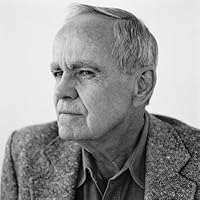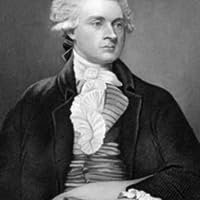Participation Quotes
Quotes tagged as "participation"
Showing 1-30 of 63
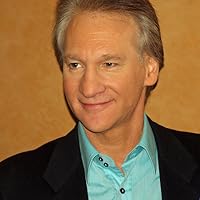
“freedom isn't free. It shouldn't be a bragging point that "Oh, I don't get involved in politics," as if that makes you somehow cleaner. No, that makes you derelict of duty in a republic. Liars and panderers in government would have a much harder time of it if so many people didn't insist on their right to remain ignorant and blindly agreeable.”
― When You Ride Alone You Ride With Bin Laden: What the Government Should Be Telling Us to Help Fight the War on Terrorism
― When You Ride Alone You Ride With Bin Laden: What the Government Should Be Telling Us to Help Fight the War on Terrorism

“On our own, we are marshmallows and dried spaghetti, but together we can become something bigger.”
―
―
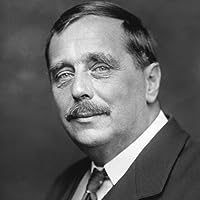
“New and stirring things are belittled because if they are not belittled the humiliating question arises 'Why then are you not taking part in them?”
―
―
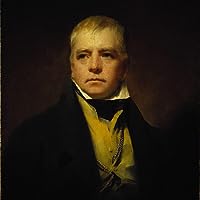
“One hour of life, crowded to the full with glorious action, and filled with noble risks, is worth whole years of those mean observances of paltry decorum, in which men steal through existence, like sluggish waters through a marsh, without either honour or observation.”
―
―

“Self-knowledge is not clarity or transparency or knowing how everything works, self-knowledge is a fiercely attentive form of humility and thankfulness, a sense of the privilege of a particular form of participation, coming to know the way we hold the conversation of life and perhaps, above all, the miracle that there is a particular something rather than an abstracted nothing and we are a very particular part of that particular something.”
― Consolations: The Solace, Nourishment and Underlying Meaning of Everyday Words
― Consolations: The Solace, Nourishment and Underlying Meaning of Everyday Words
“We don't hygge to be content, we find contentment in hygge. Hygge is... about pleasure, presence and participation.
It's... the understanding that if we are to wholeheartedly participate in life, we are entitled to small islands of calm.”
― The Book of Hygge: The Danish Art of Living Well
It's... the understanding that if we are to wholeheartedly participate in life, we are entitled to small islands of calm.”
― The Book of Hygge: The Danish Art of Living Well
“Everybody gets a participation trophy when equality of outcome replaces equality of opportunity.”
―
―

“When we chop nature into bits in an attempt to understand it, we lose sight of the relationships among those bits. But ecological healing is all about the healing of relationships.”
― Climate: A New Story
― Climate: A New Story
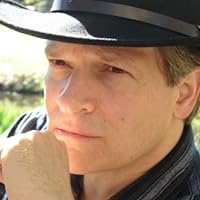
“The cure for much of what ails our society is active citizen participation. Those who don't care, those who do nothing, bear enormous responsibility for the suffering in the world.”
― The One Idea That Saves The World: A Message of Hope in a Time of Crisis
― The One Idea That Saves The World: A Message of Hope in a Time of Crisis

“Teamwork is not a game for the selfish.
It is for those with the mindset that a win for one is a win for all.”
― The Book of Maxims, Poems and Anecdotes
It is for those with the mindset that a win for one is a win for all.”
― The Book of Maxims, Poems and Anecdotes
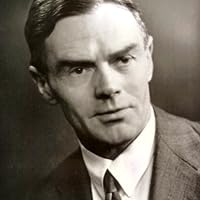
“Since participation is a way of experiencing the world in immediacy, and not a system of ideas about experience, or about the world, we obviously shall not find any contemporary description of it. When we come to contemporary philosophy and theories of knowledge, we shall indeed find explicit reference to participation, but for the moment we are concerned with the ordinary man's experience and not with what philosophers thought about that experience. Contemporary books were written, and contemporary science was expounded, for people assumed to share the collective representations of the writer, and accordingly our evidence must be sought more often in what is implied or assumed than in what is actually affirmed. We can only reconstruct the collective representations of another age obliquely.”
― Saving the Appearances: A Study in Idolatry
― Saving the Appearances: A Study in Idolatry

“A moral economy is either a moral enterprise that is guided by a genuine spiritual desire to create one, even at the expense of strictly economic considerations, or it will degenerate into another profit-oriented and exploitative use of resources. Citizens who are not prepared to pay higher prices to support such an economy and volunteer their own efforts on its behalf are not likely to be prepared for self-governance in any form. Hence the need for a new municipal politics to become an intensely educational and participatory experience at every level of civic life.”
― Urbanization Without Cities: The Rise and Decline of Citizenship
― Urbanization Without Cities: The Rise and Decline of Citizenship

“It is curious to engage in a competition where no one is in participation.”
― Weighty 'n' Worthy African Proverbs - Volume 1
― Weighty 'n' Worthy African Proverbs - Volume 1

“I wish to thank each of you for participating in this greatly significant experiment. You are about to make history with me.”
― The Manhattanville Incident: An Undead Novel
― The Manhattanville Incident: An Undead Novel

“We see it on blogs and in emails, on television talk shows, in public meetings and community forums; we are a culture that seems unable to concentrate, to pursue a line of thought or tolerate a conflicting point of view. … It’s different with a book, or any long-form piece of writing; these are slower, deeper, quieter. As readers, we are asked to slip inside the text, and if we can’t help but bring our personalities and perceptions to the process, the participation required leads to an inevitable empathy.”
― The Lost Art of Reading: Why Books Matter in a Distracted Time
― The Lost Art of Reading: Why Books Matter in a Distracted Time
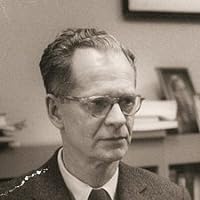
“A government is challenged when its citizens refuse to pay taxes, serve in the armed forces, participate in elections, and so on, and it may meet the challenge either by strengthening its contingencies or by bringing deferred gains to bear on the behaviour at issue. But how can it answer the question: ‘Why should I care whether my government, or my form of government, survives long after my death?’ Similarly, a religious organization is challenged when its communicants do not go to church, contribute to its support, take political action in its interests, and so on, and it may meet the challenge by strengthening its contingencies or pointing to deferred gains. But what is its answer to the question: ‘Why should I work for the long-term survival of my religion?’ An economic system is challenged when people. do not work productively, and it may respond by sharpening its contingencies or pointing to deferred advantages. But what is its answer to the question: ‘Why should I be concerned about the survival of a particular kind of economic system?’ The only honest answer to that kind of question seems to be this: ‘There is no good reason why you should be concerned, but if your culture has not convinced you that there is, so much the worse for your culture.”
― Beyond Freedom and Dignity
― Beyond Freedom and Dignity
“Our knowing - even of the most unexceptional kind - is always too big, too rich, too an cient, and too connected for us to be the source of it individually. At the same time, our knowing - even of the most elevated kind - is too en gaged, too precise, too tailored, too active, and too experiential for it to be just of a generic size. The experience of knowing is no less unique, no less creative, and no less extraordinary for being one of participa tion. As a matter of fact, on the face of it, it would probably not amount to much otherwise.”
― Communities of Practice: Learning, Meaning, and Identity
― Communities of Practice: Learning, Meaning, and Identity
“Art's relation to form, to the image, to the monistic fantasy that provoked its defense of its own dividedness is today, as Klein predicted, intermittent and embarrassed. There are modes of art now that resemble activism or protest, pure and simple; modes of art characterized by a refusal to structure themselves around subject-object relations. The visual itself, the image, is questioned as the normative framework of art. Art is often not a product, not a precious trace, not a singularity, but rahter a dynamic, multipular interaction that creates temporary publics who are public to one another. Art does not have to add anything to the world. for technology and entrepreneurship already do that. Art is an irreality opened up inside the world. Art is the refusal of complicity in any form of domination. You are not trapped by the collectivity, but you are not entirely free either, for freedom, even the anarchic mode of the artwork, is suspected to be a mode of evasion of responsibility. Art is a quasi-event: it is not there all the time (like a book), but it is also not there only at an assigned time (like a theatrical play). This has become a comparative advantage of art over the other arts, which have more trouble intervening in reality. Much art today is coordinated with long-term eschatological or emancipatory projects, with projects as such. Art aims at such positive goals as synchrony, participation, inclusion, and sympathy, concepts hard to reconcile with the once-prized, exclusive qualities of art.”
― A History of Art History
― A History of Art History

“It is not supposed to be this way.
I want to see the natural togetherness of humanity. Of life.
I look around and I see lions,
but I want to see ants.
I see dominance and I want to see cooperation;
I see extinction and I want to see sustainment.”
―
I want to see the natural togetherness of humanity. Of life.
I look around and I see lions,
but I want to see ants.
I see dominance and I want to see cooperation;
I see extinction and I want to see sustainment.”
―

“I would recommend that the reader picture the final participation as a direction in which we had all better be moving, rather than as a beatific consummation at which we might in some remote future arrive.”
― Saving the Appearances: A Study in Idolatry
― Saving the Appearances: A Study in Idolatry

“Inclusion to me means participation. You can "include" people but bringing them along to participate is when individuals experience true inclusion. Our job as leaders is to find ways for each individual to participate”
―
―
“Your intensive participation in this complex life will rub the wrong people the wrong way. But just don’t STOP! As it’s an indication of a correct direction.”
―
―

“People often tell me, "your not a manager, its not your job, don't do it." Or "Stay within your pay grade".
There are leaders who don't create impact however there are individuals that do. Your role does not add value to your team if you dont create impact, use your influence or shape culture.
Titles create weight on paper, but your influence creates weight over people. People first, position second.”
―
There are leaders who don't create impact however there are individuals that do. Your role does not add value to your team if you dont create impact, use your influence or shape culture.
Titles create weight on paper, but your influence creates weight over people. People first, position second.”
―
“Nature and her animals bear witness to us, and we bear witness to each other, and this is how we transmit the trauma out of us… stitch by stitch to show God we’re still here, we’re paying attention, we can’t do it without their higher power, and without each other. A plea and a push, our participation. It’s all necessary.”
― Glitter Saints: The Cosmic Art of Forgiveness, a Memoir
― Glitter Saints: The Cosmic Art of Forgiveness, a Memoir
All Quotes
|
My Quotes
|
Add A Quote
Browse By Tag
- Love Quotes 97.5k
- Life Quotes 76k
- Inspirational Quotes 73k
- Humor Quotes 43.5k
- Philosophy Quotes 29.5k
- Inspirational Quotes Quotes 27k
- God Quotes 26k
- Truth Quotes 23.5k
- Wisdom Quotes 23.5k
- Romance Quotes 23k
- Poetry Quotes 22k
- Death Quotes 20k
- Happiness Quotes 18.5k
- Life Lessons Quotes 18.5k
- Hope Quotes 18k
- Faith Quotes 18k
- Quotes Quotes 16.5k
- Inspiration Quotes 16.5k
- Spirituality Quotes 15k
- Religion Quotes 15k
- Motivational Quotes 15k
- Writing Quotes 15k
- Relationships Quotes 14.5k
- Life Quotes Quotes 14k
- Love Quotes Quotes 14k
- Success Quotes 13.5k
- Time Quotes 12.5k
- Motivation Quotes 12k
- Science Quotes 11.5k
- Motivational Quotes Quotes 11.5k

